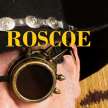Six Famous American Poets
My interaction with them in the 1980s

Perhaps now is a good time to remember the poets who inspired me, made me think, made me consider language carefully. I paid close attention to a few poets in the 1980s and 1990s. I corresponded with William Stafford, and sometimes with Naomi Shihab Nye, W.S. Merwin and Robert Bly. These poets along with Pablo Neruda, Czeslaw Milosz and Marvin Bell opened my imagination to the subtle intensity of language, diverse ways to deliver a story, or a hint of a story, or the mood which precedes the story. Layered phrases of meaning with hints of further possibilities.
William E. Stafford
The first time I met William Stafford he was standing in line at the Post Office in Lake Oswego. I smiled at him and said, “I recognize you. You are William Stafford. I have seen your picture on the back of your books.” Being a polite man, he extended his hand, to shake my hand, and said, “Hello.” Over a period of eight years, we visited with each other a few times, once at Lewis and Clark College, at several poetry workshops, and when I made videos of him reading poetry for a show I hosted on cable access television in Tigard, Oregon. One of the shows featured both Bill Stafford and Marvin Bell.
I truly enjoy what happened as we were setting up microphones and cameras, as much as what we captured on videotape. (yes, we used VHS tapes then.)
Bill and Marvin sat facing each other and held a conversation about languages, the articulation and syntax of various languages, including Native American languages. This is the level of seriousness both men brought to their art.
Both men as interested in the sound and the rhythm of language, just as much as they were interested in what any words collected into a poem might have to say. They considered sound as seriously as a composer considered sound.
After I moves from Oregon to California, Bill and I exchanged twenty or more letters, often just news about our lives. I do remember my last conversation with him. Two weeks after his son died by suicide. I called him at his home in Lake Oswego. He answered, and needed to move the phone to his garage, as the house was noisy with guests. After a few words, I could not hold back my natural response. I said, “ I love you, Bill. I am so sorry about your son.” There was a long pause. Then he said, “Thank you, Chuck.”
I remember Bill Stafford as a generous man. Clear-headed about what he could do and what he could not do. Always willing to encourage young talent, and often more interested in young people and their talent and their ideas, more than in the works of famous writers. Except Charles Dickens. At some point he told me he was re-reading all the works of Charles Dickens. Our casual conversations covered many topics, including the creative process of Mozart, and creative inspiration in general.
Regarding politics and protest, he mentioned: Many student protestors in the 70s had no idea, the college professor with his briefcase and backpack full of books was close to their cause. William Stafford knew, occupying a campus and burning things would cause little significant change. He was as glad as anyone to see the Vietnam War end. He was also aware, this would not be the last war created by the leaders of the United States of America. And, as a paid employee of a college, he was required to remain cautious with what he said and did in public. We see this in his poems. Never raising an angry fist to shout righteous anger about anything. His anger was restrained, and written in calm, though sometimes frightening, turns of careful language. He was above all things among the most practical poets I have ever met.
21 May 87
Dear Chuck,
Just as I am poised to take off for Long Beach,
Washington, to read with Kim at the Shelburne Inn,
here comes your strong poem.
Maybe it will help me put more bite into my recent
products, which seem to be verging toward minimalist
Don't get too tough. The times are pickling us,
but we must stay human, I keep telling myself.
I'm off - -
Bill Stafford
W.S. Merwin
In addition to thoughtful and beautiful poem, W.S. Merwin was supportive,
giving strength to my artistic temperament, during youthful moments of horror
which leaned toward suicide. He wrote to me, saying several of his friends died by suicide, and the hole they left in his life was inconsolable. He understood my intense pain and disappointment with the economic of 20th Century America, artists struggling to physically survive. He said life itself was far to valuable cut short, even with all the suffering. Live through it.
Move past it. Create what you need. Those are not exact words, just the general ideas he wanted me to consider.
Some years later, when I worked for the Borders Bookstore chain, I made arrangement with the Public Relations Office at the nuclear submarine base in Bangor, Washington. I offered naval personal a 20% discount on all books, and specifically created book-lists, suggested reading to men who lived inside submarines. I was told each nuclear submarine has a paperback library, a locker full of books for the boys to read during long months at sea.
Not really sure what book to include on my book-list, I wrote to Galway Kinnell, W.S. Merwin and a few other poets for suggestions. I specifically asked the poets what books they would hope the man sitting behind the launch button may have read. Only W.S. Merwin responded with helpful ideas. He suggested Huckleberry Finn and the poetry of Emily Dickinson. He thought those would be subversive enough for any nuclear sub.
W.S. Merwin went further, to write a piece called Undersea Libraries which was later published in the American Poetry Review. I still have a photocopy is his original manuscript of that piece, typed on some old typewriter Merwin had in Hawaii. Thinking about W.S. Merwin, other memories arrive. I remember how his eyes sparkled when he mentioned having several of his short poems published in The New Yorker magazine. For him a big win, a way to reach a larger audience than is usually available to poets. An average poet, on an average day, never gets to reach an audience of one million or more readers.
Naomi Shihab Nye
In the 1980s my she was my favorite poet. Her best work delivered a stunning
blow. Someone called her the velvet hammer. After attending several readings
and several workshops, of course, I fell in love with her. In two workshops, I
was the only man present. I found this curious, and never reached a conclusion
about why Naomi's closest followers were women. Overwhelmed, amazed by
her beauty, intelligence and exotic creative language all inside one human
female. Honestly, I had never met a girl like this before. We had nothing like her in Escanaba, Michigan in the late 1970s. And though, I then lived in California with many excellent females with excellent talents, my imagination was still the imagination of a boy who grew up in Escanaba, Michigan.
And that was not a bad thing. I was different from boys who grew up in big cities. I understood the refraction of water, shooting arrows at carp and missing.
Decades later my love for her and my love for her poems seems far less
important. My mind has moved for decades further and further into music, and
who I was, and what I felt, and what I thought about long ago remains useful
only in how it drove me forward, to where I now stand. In the woods behind my house, listening to a wood thrush, thinking how I cannot stop singing anymore than the bird can stop singing.
Sometime in the late 1980's I wrote this poem:
Naomi (an apple for a teacher)
She braids courage every morning,
lifts a guitar and sings:
I haven't given up.
Round rims frame more than I can hold.
On a pillow, shoes shoe to one side,
she sits and asks: What makes a man
with a gun look bigger?
C, D, G and e minor,
only four chords were
necessary for Thoreau.
Maybe trees,
nothing else in our world
understands the literal sky
defining white...
Clear as a yellow glove:
I haven't given up.
I never will.
Marvin Bell
One of several times I met Marvin Bell. Once, I hardly recognized him, nothing likes the clean-cut photos on the dust-jackets of his books. He wore a scruffy beard, a brown fishing cap, and a black eye-patch over his left eye.
Just like a pirates. Honestly, he reminded my of a swash-buckling pirate from
some dark Hollywood film. Other times, he cleaned-up very well, as when I video-taped an poetry reading of him for Community Access Television in Tigard, Oregon. For the same weekly program, I video-taped Marvin Bell reading with William Stafford. I set a fern between them. We did that in the 1980s for Community Access TV, always a fern. I also brought along specific books by both poets, hoping they would read a few of my favorites.
On one occasion we discussed a few author who passed through Marvin's Iowa Writer's Workshop. Novelists and poets of all colors. He told me about visiting Thomas Harris's home, I don't remember where. In the tone of Marvin's voice, and the track of the conversation, it was clear: Marvin Bell the poet, and college professor was slightly envious of the creator of Dr. Hannibal Lector, and envious of the rewards of writing, Silence of the Lambs. No poet ever makes that much money for anything. Nor reaches an audience of millions.
Every writer has ambitions, and hopes they will be published by some company well-known for publishing this or that famous writer. One wishes to be published by the same firm which published writers one admires. Marvin was no exception to this human hope and ambition. On several occasions he was disappointed. Perhaps a willing editor left the decision-making role. Perhaps the firm itself changed priorities. For whatever reason, Marvin Bell was passed over in favor of talented younger writers, and even less worthy writers.
I say this so younger poets will understand how the publishing business worked in the 1980s and 1990s. I have no idea if any actual publishing business exists in 2021. It is much like the record business and the music business, which both collapsed with the end of physical bookstores and physical record stores. To me, both industries appear to be pretending to still be worthwhile. They make as much money as possible from licensing the material they own to television and the movies. The book publishing business, the recorded music and “live concert” industries provide about as much opportunity for new artists as presidential elections provide opportunities for poor people. Only piles and piles of money buys one's way into those industries, and into those elections.
Here I wish to mention another aspect of the high-culture industry in the United States. Artists of all kinds strive for seals-of-approval, from this or that popular venue. The NPR and PBS seals-of approval, gets slapped on the hind-quarters of a handful of writers, who get promoted on air and in documentaries. Those selected few reach an audience far larger than they would otherwise. One notices, the NPR/PBS approved writers are chosen to be popular with generally affluent white Liberals, and rarely ruffle the generally-agreed-upon popular talking points favored by that demographic.
In other words, NPR would never let a person like William Burroughs on the air talking about his perverse sexual fantasies. Nor, Charles Bukowski's cheery and drunken memories of sexual adventures with co-eds on major college campuses. In other words, the NPR seal-of-approval deliberately limits the worldviews and the topics which will be promoted. Gay, lesbian and transgender angst is extensively promoted. Heterosexual angst, average heterosexual humans, being assaulted from all angles by loud and constant LGBTQ propaganda.... that does not get any airtime.
Marvin Bell once mentioned to me, the moral problem of being hired to teach writers to be writers, and poets to be poets. It is a recognized fact, one cannot teach people how to write, if the student has no inherent talent with language. It is therefore a deception to be paid to teaching writing. Both Bill Stafford Marvin Bell thought seriously about this moral issue, as they were both paid well by colleges and universities. Marvin say Bill Stafford solved the moral problem by gathering the students together, to talk with each other, to teach each other. In that many, he was out of the central position of hypocrisy.
Carolyn Kizer remains silent, and Adrienne Rich drops a pen
When I asked Carolyn Kizer what made poetry more than a sophisticated form of entertainment, she was silent. Her grand-daughter sitting close by was eager to defend the art of poetry, urgently saying poems were inspirational, touching
people's souls, giving people new ideas and comfort, and other things like that. Carolyn Kizer remained silent. She understood the artistic problem to which I referred, and had no ready answer. Unlike Robert Bly, Carolyn Kizer was not ready or willing to say, poetry is a way of touching the Infinite. Robert Bly seemed to understand the ancient function of poetry. Carolyn was altogether too American. Perhaps most everyone with a Pulitzer Prize does not wish to talk about God, and say their art comes from God.
At Black Oak Books in Berkeley, Adrienne Rich attended a reading by Czeslaw
Milosz. W.S.Merwin was also present. I remember, after the reading Milosz and Merwin hugged each other. Adrienne Rich did not make herself available for hugs in that setting. Without knowing who she was, I sat next to Adrienne Rich in the first row of chairs. Later, after the reading, Adrienne Rich browsed the bookstore, walking slowly among the aisles. As I stood near her, she deliberately dropped a pen. Took it out of her blouse pocket, and dropped it on the floor. I knew my polite-courteous-male-response-mechanism was being tested. She was being playful. Perhaps she wanted to know if my Momma taught me to pick up fallen objects for women. Perhaps she just wanted to start a conversation. I picked up the pen and handed it to her. But, I was tongue-tied, because by then I was fully aware she was Adrienne Rich the famous feminist writer, who had ambivalent feelings toward men, and truly preferred to eat young, willing and cheerful pussy. That was too much for a 20-something boy from Upper Michigan.
About the Creator
Roscoe Forthright
Erotic filmmaker and novelist. I use x-rated heterosexual short films as a tool for spiritual enlightenment. Laugh all you want. This actually works for many people. Fucking is universal! And very popular!






Comments
There are no comments for this story
Be the first to respond and start the conversation.